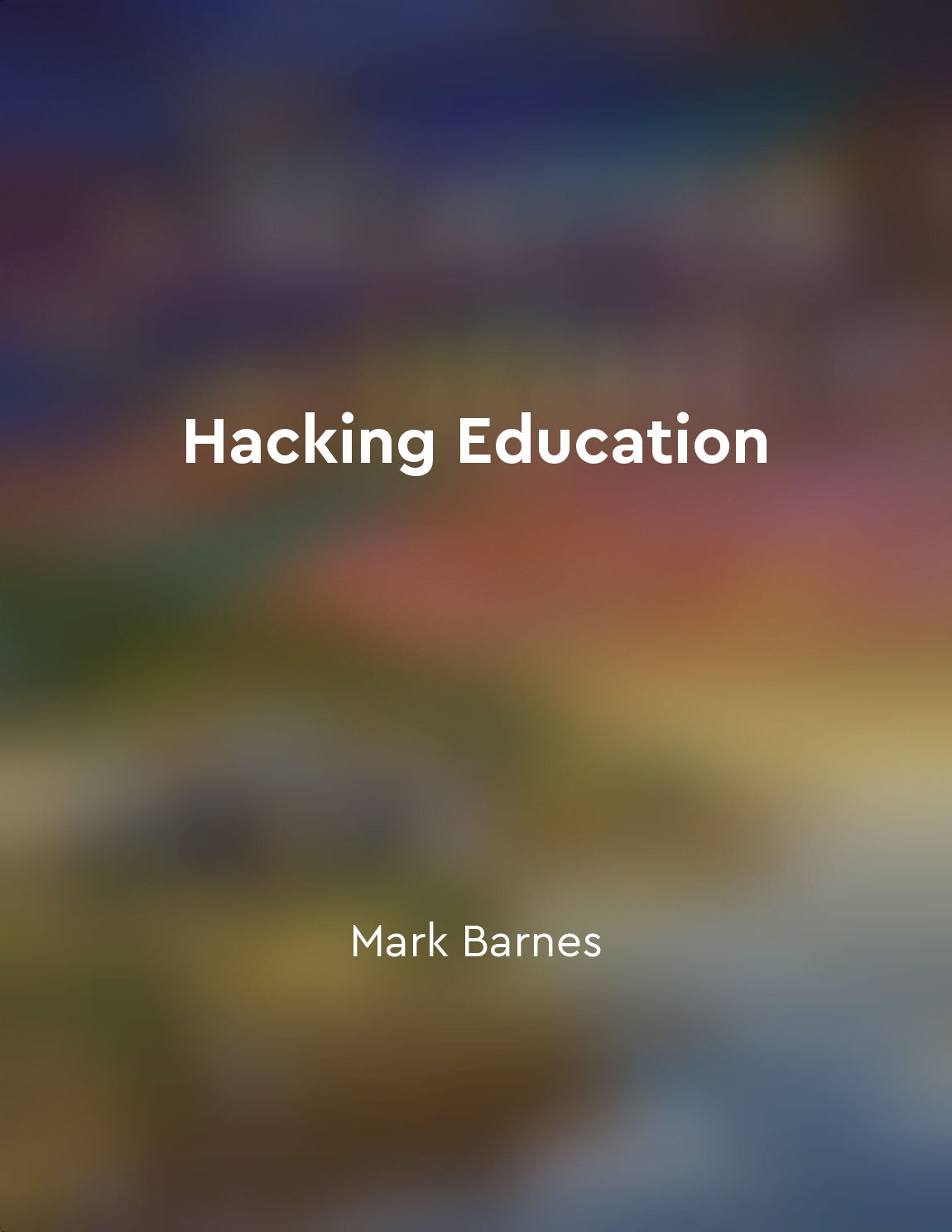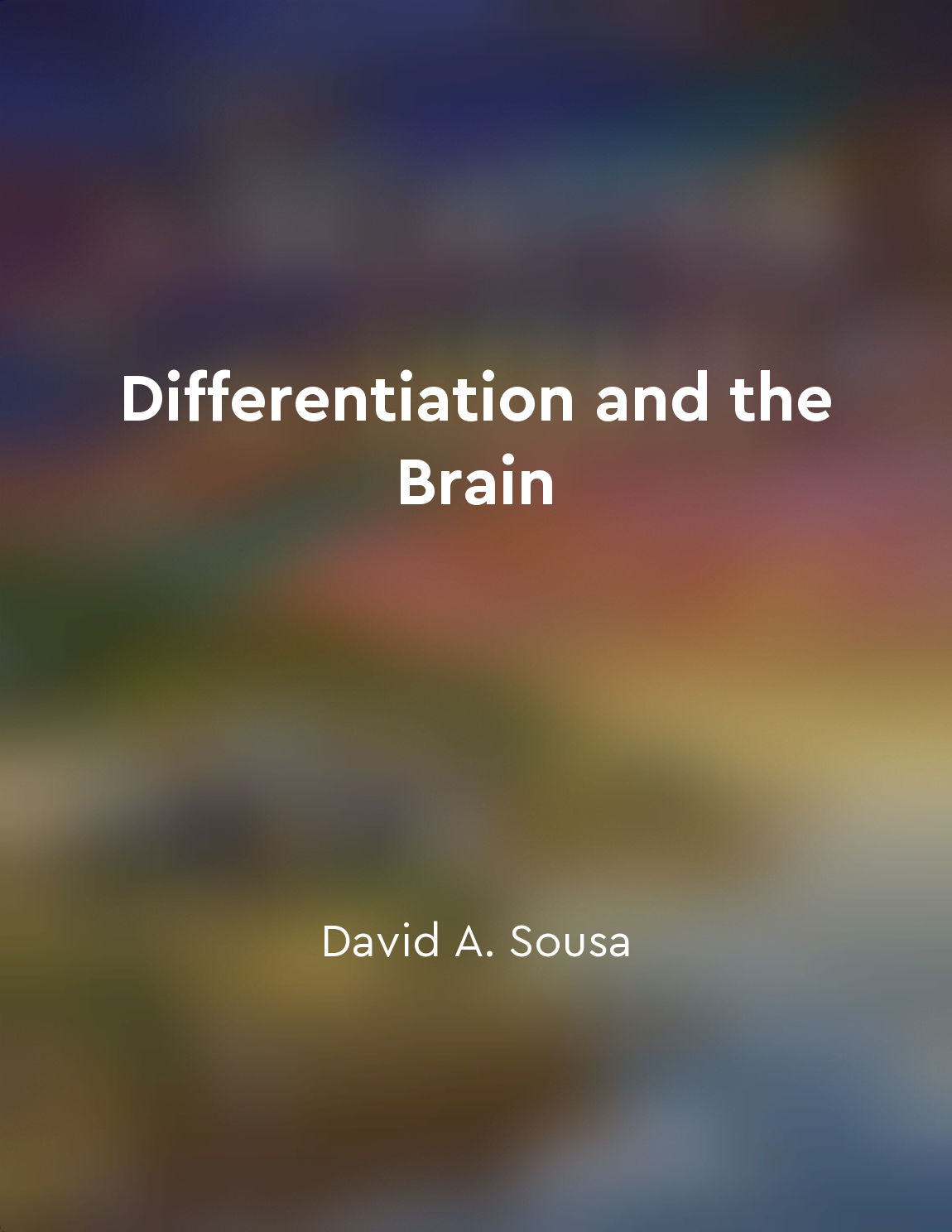Educational philosophies influence teaching practices from "summary" of Schools and Society: A Sociological Approach to Education by Jeanne H. Ballantine,Joan Z. Spade
Educational philosophies play a crucial role in shaping teaching practices within educational institutions. These philosophies serve as guiding principles that inform educators on how to approach teaching and learning. By understanding the underlying beliefs and values of educational philosophies, teachers are able to tailor their instructional methods and strategies to align with these overarching principles. For instance, a teacher who subscribes to a progressive educational philosophy may prioritize student-centered learning and hands-on experiences in the classroom. This approach is rooted in the belief that students learn best when actively engaged in the learning process and when their individual needs and interests are taken into consideration. As a result, the teacher may incorporate collaborative activities, project-based assignments, and experiential learning opportunities to foster a more interactive and personalized learning environment. On the other hand, a teacher who adheres to a traditional or conservative educational philosophy may emphasize discipline, structure, and a more teacher-centered approach to instruction. This philosophy places value on authority, order, and the transmission of knowledge from teacher to student. Consequently, the teacher may rely on lectures, textbooks, and rote memorization as primary instructional methods to impart information and maintain control in the classroom. Furthermore, the impact of educational philosophies on teaching practices extends beyond the classroom setting. School administrators, curriculum developers, and policymakers also draw upon these philosophies to shape educational policies, curricular frameworks, and assessment practices within schools. By aligning these institutional structures with prevailing educational philosophies, stakeholders can create a cohesive and coherent educational system that reflects shared values and goals.- Educational philosophies serve as a lens through which educators view their roles, responsibilities, and relationships with students. By grounding teaching practices in these philosophical frameworks, educators can cultivate learning environments that are meaningful, relevant, and effective in promoting student growth and development. Ultimately, the influence of educational philosophies on teaching practices underscores the profound impact of ideological perspectives on the field of education and the broader societal implications of educational theory and practice.
Similar Posts
Inspiring a passion for lifelong learning
The concept of lifelong learning is essential for personal growth and development. It involves a continuous process of acquirin...

Cultivate a sense of agency in students
When we talk about cultivating a sense of agency in students, we're really talking about giving them ownership over their own l...
University administrations should uphold the values of academic freedom
In the academic world, the principle of academic freedom is paramount. It is the foundation upon which universities are built, ...
Professional development is vital for educators to enhance their teaching strategies
The ongoing professional development of educators is crucial for the continuous improvement of teaching strategies. It is throu...
Japan's approach yields better results in math
The idea that Japan's approach to teaching math produces superior results is a central theme in our exploration of teaching pra...
Authentic assessment methods provide a more accurate reflection of student understanding
Authentic assessment methods, such as performance tasks or projects that require students to apply their knowledge in real-worl...

Effective differentiation requires knowing your students well
Understanding the concept of effective differentiation involves recognizing the importance of knowing your students well. This ...
Small changes can make a big difference
The idea that small changes can make a big difference is a central theme in The Teaching Gap. Stigler and Hiebert illustrate th...
Striving for continuous improvement leads to excellence
Continuous improvement is a hallmark of excellence in teaching. The best law teachers are constantly seeking ways to enhance th...

